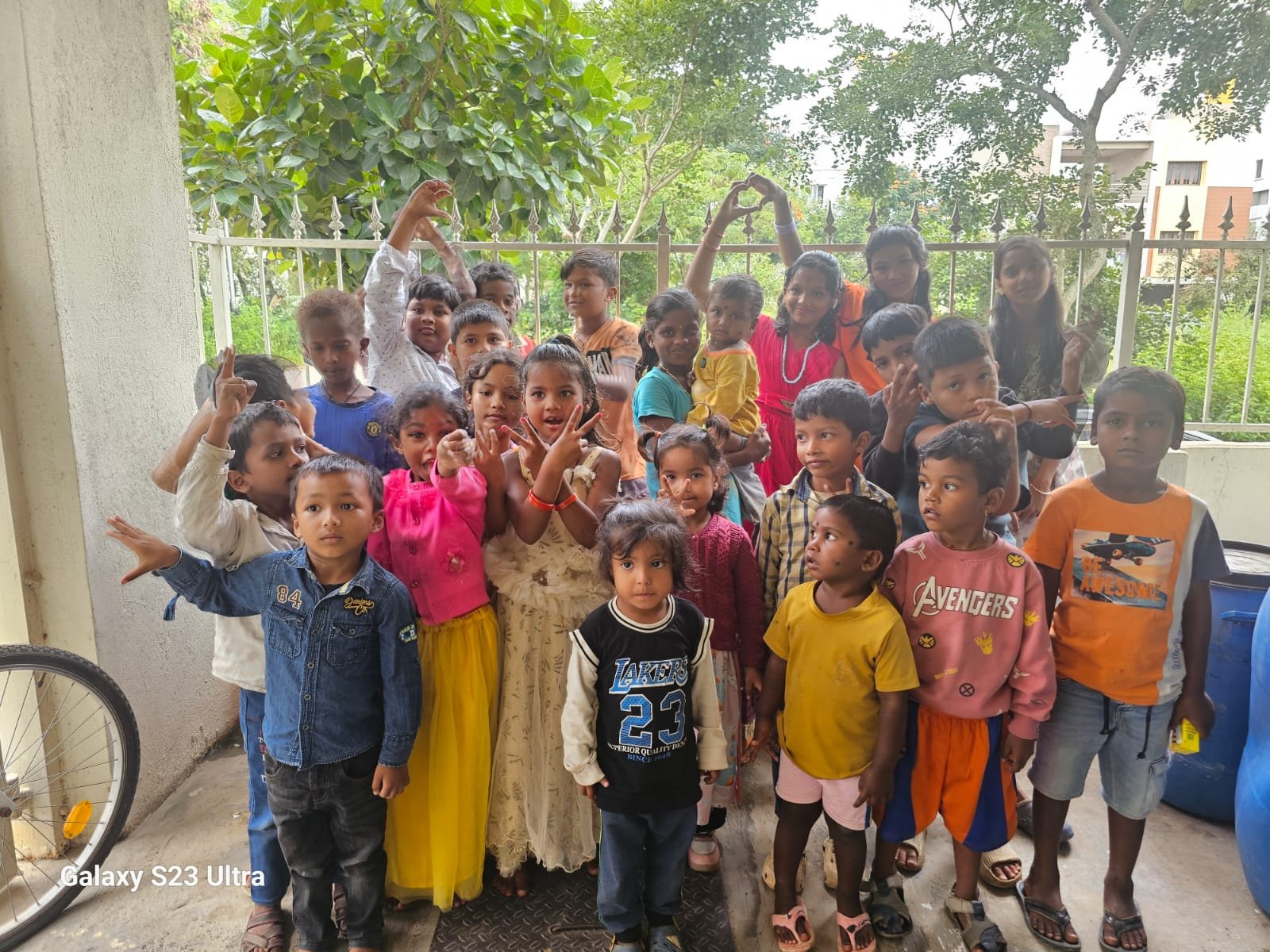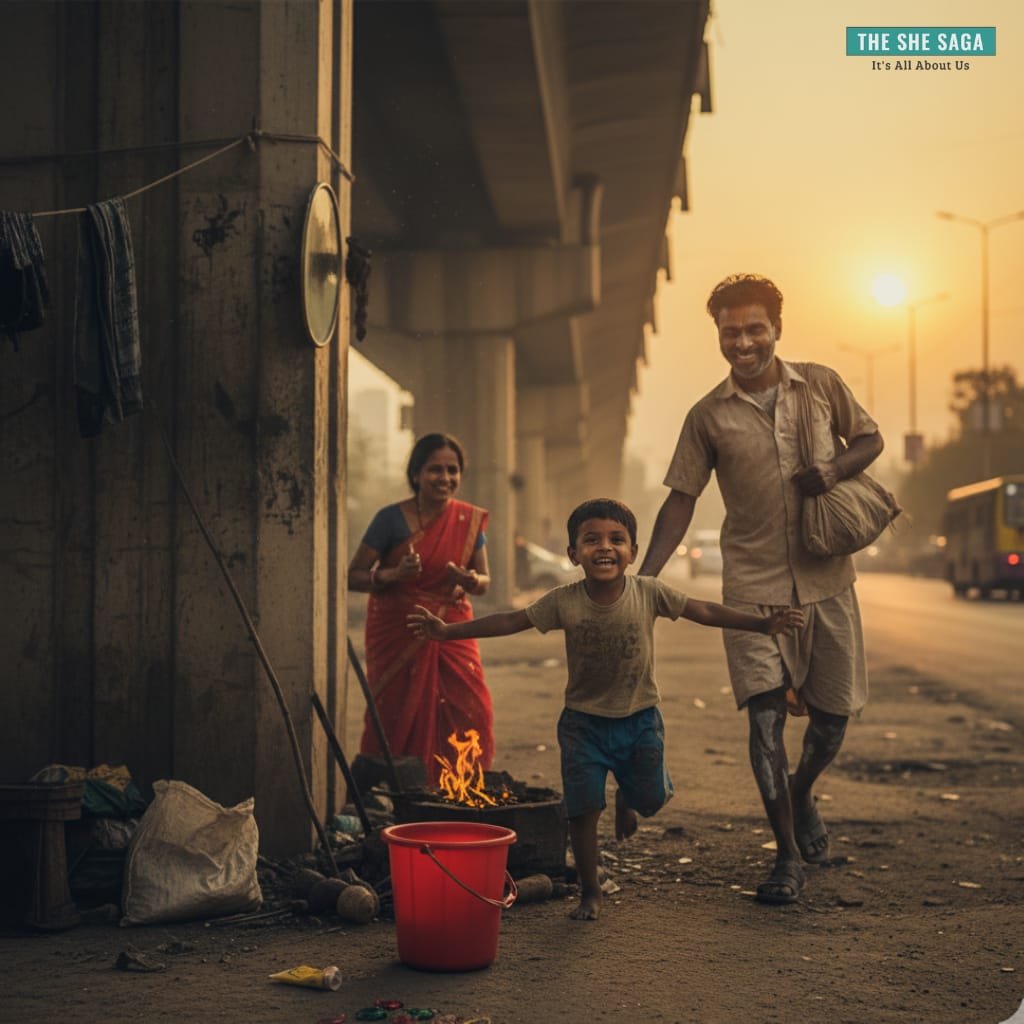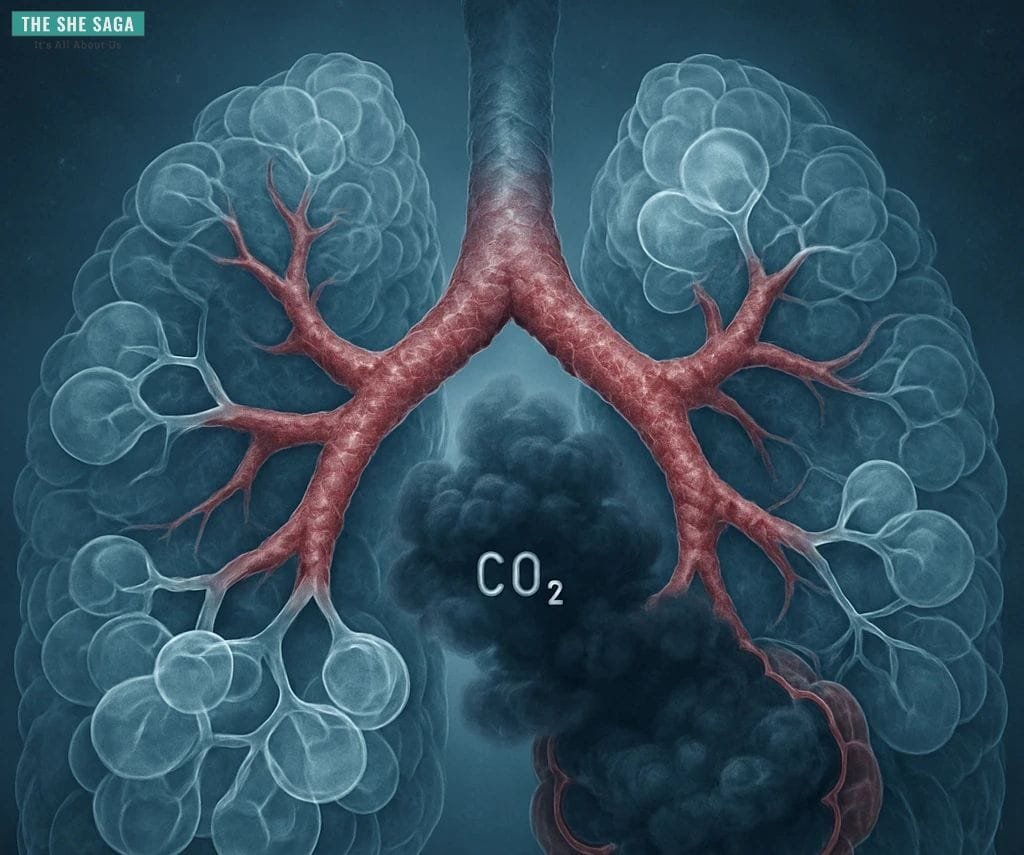The rhythmic clang of hammers, the whir of machinery, the scent of fresh cement—these are the hallmarks of progress, the sounds of India building its future. Yet, within this landscape of growth, an unseen story unfolds every day: the silentstory of children growing up where foundations are laid, pillars rise, and dreams are built— dreams that are rarely their own.
These are the children of migrant workers. Their childhoods are shaped by movement, uncertainty, and resilience. As their parents travel from site to site in search of work, these young minds travel too—often away from education, health services, and the stability every child deserves.
Childhood on the Move
Imagine a life where “home” is a temporary shelter erected near the latest construction project; where “school” is a distant, often unattainable concept – because it starts in one state and remains incomplete when the family moves again. For these migrant children, frequent relocation is a fact of life. As one building completes, the family packs its meagre belongings, moving across states, sometimes even across linguistic borders within India. A new language, a new environment, a new beginning—yet learning rarely has the chance to catch up.
This constant movement shatters the very idea of educational continuity – and without continuity, many children slip out of the education system long before they truly enter it. Little Priya, who might have just begun learning numbers in in a village school may suddenly find herself without a classroom—or in a new one where she cannot understand the local language.
Essential documents like transfer certificates rarely exist. And for many Nepali migrant children, this language barrier and the absence of Aadhaar means access to government schools and services remains out of reach.
Childhood becomes a journey filled not with classrooms and books, but with caregiving responsibilities, helping parents, or simply waiting for the right time to “settle down” and begin school—a moment many of these kids never see.
The Paper “Walls” of Exclusion
Documentation is meant to empower—but for migrant families, it often excludes.
For many, particularly children of Nepali migrant workers who form a significant part of India’s construction workforce, an even more fundamental barrier exists: the absence of Indian Aadhaar cards. Without local IDs, many children cannot enroll in schools, receive healthcare, or access safety nets. Their identity, movement, and labour build cities – yet they are literally, and legally, unseen.
Economic vulnerability deepens these barriers. Parents, locked in a cycle of precarious work and low wages, sometimes feel that schooling can wait until they “settle down.” They often need older children, especially girls, to care for siblings while they work – a stark reality. Loss of income is not a risk they can take—and while understandable from a survival perspective, this makes education a distant hope.
Pathways of Hope
Even in this difficult landscape, hope is not lost. Dedicated initiatives have emerged across the country, to bridge these gaps and provide education to these resilient children.
Mobile Learning Centres & Bridge Schools
Organizations like RTE Forum and Pratham bring education to construction sites, offering flexible classes and language support to transition children into formal schooling.
Seasonal & Residential Hostels
Groups like MV Foundation provide safe residential learning spaces, ensuring continuity of education even when families migrate.
On-Site Crèches & Daycare Support
Mobile Creches (Aide et Action International) and similar organizations create safe spaces for young children—preventing older siblings from leaving school to provide care.
Policy & Advocacy Efforts
Education advocates push for flexible school admissions, recognition of informal learning, and access without documentation barriers.
Our Commitment
At our foundation, we believe every child—no matter where they come from or where they move—deserves a stable chance to learn, grow, and dream.
Our work begins where others often do not look:
On construction sites
In migrant settlements
With families constantly on the move
We are establishing daycare centres and flexible learning programs so that:
Older siblings can attend school without caregiving burden
Young children receive early learning and safe care
Migration does not interrupt education
Documentation hurdles do not determine a child’s future
These children are not merely dependents; they are the future engineers, doctors, and teachers. They are future builders—not just of cities, but of a more just and equitable India. They carry immense resilience within them.
What they need is opportunity, not pity. What they deserve is dignity and solidarity, not sympathy.
Aashiyaan – the intersection of challenge and solution
Join us in laying an unseen, yet powerful, foundation—a foundation of education, health, safety and hope for every child, no matter where their parents’ work may take them.
Your help can ensure every migrant child carries not the weight of uncertainty, but the promise of possibility. Together, let us build futures—brick by brick, lesson by lesson, dream by dream.

By Deepa Perumal
Written for the Aashiyaan Foundation













